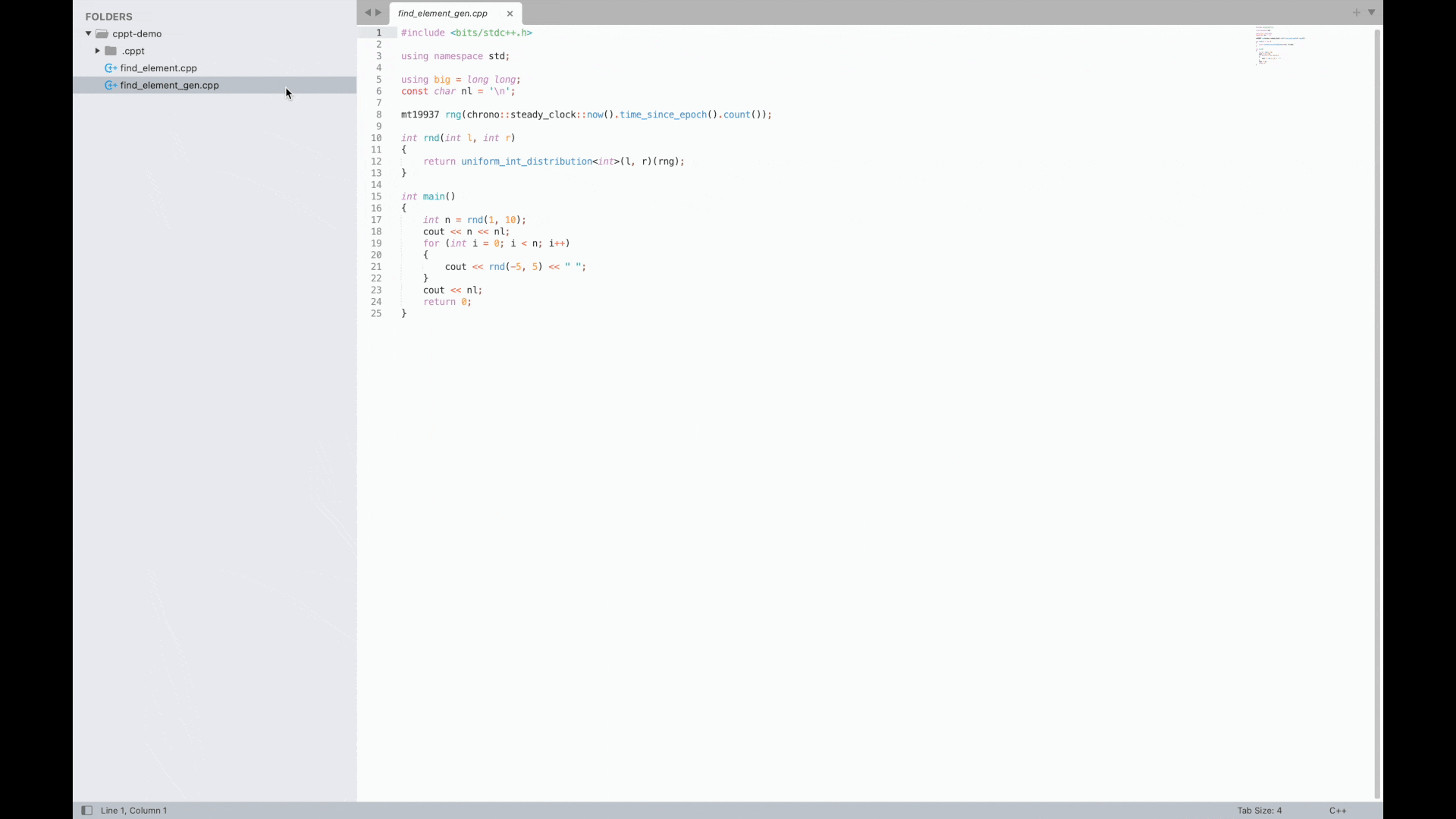Stress test task
CPPT can help you stress test your code against randomly generated testcases.
You should create a random testcase generator code to test your source code. This code should output a single random testcase file every time you run it (for better results, try using smaller constraints on the range of values in the testcase).
You should add a validator function in your source code file, which could be a brute force solution, editorial code, or an output correctness checker. If your validator states that your output is incorrect, you should use the standard output (cout in c++) to print any debugging info that will stop the command execution (it is mandatory to print something to the standard output to state the source code failed) and displays the testcase. If your output is correct, then do not print anything to the standard output. It would result in command termination instead use the standard error (cerr in c++).
Currently, the testing speed of this command is slow, so if you are using a Unix operating system. I would recommend checking out Errichto's video on stress testing and my Github repo for doing the same using bash script.
Usage
cppt test --help
Usage: cppt test [OPTIONS] FILENAME TESTCASE_GENERATOR_PATH
Generate random testcases and run your code against them.
Create a function in your source code which validates
your answer if the validation fails print your answer to
std output.
Args:
FILENAME of the source code file with file extension
TESTCASE_GENERATOR_PATH: path of test case generator file
Options:
-n, --number-of-runs INTEGER no of randomly generated testcases [default:
10000]
-p, --path DIRECTORY path to the folder which contains the souce
code
-h, --help Show this message and exit.
Demo
